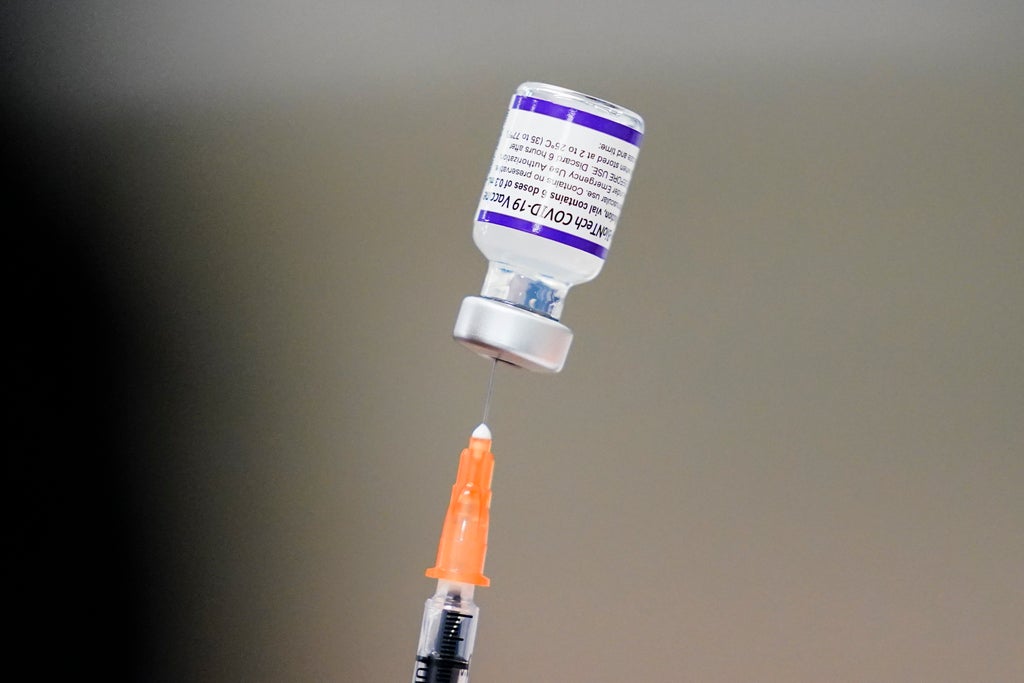
Drugmakers Pfizer and Moderna have filed applications for emergency use authorisation with the US Food and Drug Administration for a second “booster” dose of their Covid-19 vaccines, which an advisory panel for the federal agency is expected to discuss in April.
Pfizer is seeking approval for a second booster dose for people aged 65 and older, while Modern is seeking authorisation for a second booster for all adults.
Their initial two-dose vaccines followed by a third “booster” dose have provided critical protections against severe disease, hospitalisation and death during the public health crisis, now into its third year, as studies begin to reveal their waning effectiveness and durability against different variants.
Currently, people in the US with moderately or severely weakened immune systems are eligible for a fourth dose.
The FDA’s Vaccines and Related Biological Products Advisory Committee meeting on 6 April will discuss the potential development of variant-specific Covid-19 vaccines as well as the “timing and populations for Covid-19 vaccine booster doses in the coming months,” the agency announced on 21 March.
No votes are planned at the meeting and there will not be any discussion of “any product-specific applications,” according to the agency.
“As we prepare for future needs to address Covid-19, prevention in the form of vaccines remains our best defense against the disease and any potentially severe consequences,” said Peter Marks, director of the FDA’s Center for Biologics Evaluation and Research.
“Now is the time to discuss the need for future boosters as we aim to move forward safely, with Covid-19 becoming a virus like others such as influenza that we prepare for, protect against, and treat,” he said in a statement.
Roughly one-third of the US – nearly 100 million Americans – are still not vaccinated against Covid-19, according to the US Centers for Disease Control and Prevention.
About 65 per cent of the US is considered fully vaccinated, or has received both initial doses of Pfizer and Moderna vaccines or the single-dose Johnson & Johnson vaccine, while only 44 per cent of those Americans have received a booster dose.
Meanwhile, the White House has warned that the federal government has exhausted Covid-19-related funding to be able to buy additional booster doses for all Americans.
While the US has secured enough doses to cover additional boosters for currently eligible Americans, as well as doses for children under age 5, should federal regulators determine they are eligible, administration officials have said that the federal government cannot place advance orders for more doses without congressional passage of a $15bn public health funding package.
Moderna’s request argues that a broader approval for an additional booster would provide the CDC and healthcare providers more flexibility in determining who should receive one and when – an issue that has been hotly debated among physicians and officials.
Pfizer and its partner BioNTech, pointing to two studies in Israel, said an additional dose of their vaccine at least four months after a third shot rebuilds virus-blocking antibodies and has been shown to protect older adults from severe disease.
“People who are vaccinated, particularly those who have received a booster, maintain a high level of protection, particularly against severe disease and hospitalization,” according to a statement from the companies.
A study published by the CDC last month suggested that booster doses had some waning efficacy after four months but still provided strong protection against severe illness, hospitalisation and death, especially in comparison to unvaccinated people.







